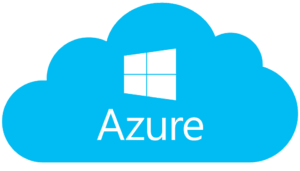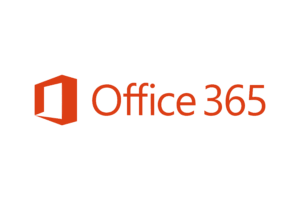Cloud solutions are services that deliver computing resources—including servers, storage, databases, networking, software, analytics, and intelligence—over the internet (“the cloud”).
Think of it like this: instead of storing all your files and applications on your personal computer, you store them on remote servers managed by a third-party provider.
Types of Cloud Solutions

Zoho Cloud Solutions refers to the suite of over 55+ business applications offered by Zoho Corporation, delivered through a cloud computing model. This means you can access and use these applications over the internet without needing to install or maintain complex hardware and software on your own premises.
Key Aspects of Zoho Cloud Solutions:
- Comprehensive Suite: Zoho offers a vast array of integrated applications, reducing the need for disparate software from multiple vendors. This can lead to better data flow, streamlined workflows, and a single point of management.
- SaaS (Software as a Service): Zoho’s applications are primarily offered as SaaS, meaning you typically pay a subscription fee to use them. This eliminates large upfront licensing costs and provides predictable monthly or annual expenses.
- Accessibility: Being cloud-based, Zoho solutions can be accessed from anywhere with an internet connection using various devices like desktops, laptops, tablets, and smartphones. This enhances flexibility and remote work capabilities.
- Scalability: Zoho’s cloud infrastructure can easily scale up or down based on your business needs. As your organization grows, you can add more users and access more features without significant IT overhead.
- Integration: Zoho applications are designed to work seamlessly together. For example, your sales data in Zoho CRM can integrate with your accounting data in Zoho Books, providing a holistic view of your business. They also offer integrations with various third-party applications.
- Security: Zoho invests heavily in security measures to protect user data within their cloud infrastructure.
- Automatic Updates: Zoho handles software updates, patches, and maintenance, freeing up your IT resources.
Examples of Zoho Cloud Applications and Services:
Zoho’s suite is broad, but here are some key categories and popular applications:
- Sales & Marketing: Zoho CRM, Zoho Campaigns, Zoho Social, Zoho SalesIQ, Zoho Forms, Zoho Sites.
- Email & Collaboration: Zoho Mail, Zoho Cliq, Zoho Meeting, Zoho WorkDrive, Zoho Writer, Zoho Sheet, Zoho Show.
- Finance: Zoho Books, Zoho Invoice, Zoho Expense, Zoho Inventory, Zoho Billing, Zoho Checkout.
- Human Resources: Zoho People, Zoho Recruit, Zoho Workerly, Zoho Payroll.
- Project Management: Zoho Projects, Zoho Sprints.
- Customer Support: Zoho Desk, Zoho Assist, Zoho Lens.
- Business Intelligence & Analytics: Zoho Analytics.
- Custom Application Development: Zoho Creator.
- Low-Code Platform: Zoho Catalyst.
- IT Management: ManageEngine (a division of Zoho Corp offering solutions for IT management).
Benefits of Using Zoho Cloud Solutions:
- Cost-Effective: Reduces capital expenditure on hardware and software. Subscription-based pricing offers predictable costs.
- Improved Collaboration: Enables teams to work together efficiently regardless of location.
- Increased Productivity: Streamlined workflows and automation features save time and effort.
- Real-time Data and Insights: Integrated applications provide a unified view of business data for better decision-making.
- Enhanced Security and Reliability: Zoho handles infrastructure security and ensures high uptime.
- Scalability and Flexibility: Easily adapt to changing business needs.
- Mobile Accessibility: Access your business applications on the go.
- Focus on Core Business: By offloading IT management, you can focus on your primary business activities.
Azure

Azure Cloud Solutions refers to the vast and ever-expanding suite of cloud computing services offered by Microsoft under the brand name Microsoft Azure.
Think of Azure as a giant toolbox in the cloud, filled with a wide array of services you can pick and choose from to meet your specific IT needs.
Key Categories of Azure Cloud Solutions:
Azure offers services across numerous categories, including:
- Compute: Provides virtual machines (VMs), containers (Azure Kubernetes Service – AKS, Azure Container Apps), serverless computing (Azure Functions, Azure Logic Apps), and batch processing.
- Networking: Enables you to create virtual networks, manage traffic with load balancers and traffic managers, connect to on-premises networks with VPN Gateway and ExpressRoute, and deliver content globally with Azure Content Delivery Network (CDN).
- Storage: Offers various storage options for different data types, including object storage (Azure Blob Storage), file storage (Azure Files), disk storage (Azure Disks), and archival storage (Azure Archive Storage).
- Databases: Provides a range of managed database services, including relational databases (Azure SQL Database, Azure Database for PostgreSQL, Azure Database for MySQL), NoSQL databases (Azure Cosmos DB), and data warehousing (Azure Synapse Analytics).
- Analytics: Offers tools for big data processing, data warehousing, data integration (Azure Data Factory), business intelligence (Power BI), and real-time analytics (Azure Stream Analytics).
- Artificial Intelligence (AI) and Machine Learning (ML): Provides services like Azure Machine Learning, Azure AI services (for vision, speech, language, and decision), and Azure OpenAI Service for building intelligent applications.
- Internet of Things (IoT): Offers services to connect, monitor, and manage IoT devices at scale, including Azure IoT Hub and Azure IoT Central.
- Security: Provides a comprehensive set of security services and tools to protect your cloud resources, including Azure Security Center, Azure Sentinel, Azure Active Directory for identity and access management, and Azure Key Vault for managing secrets.
- Hybrid and Multicloud: Enables you to connect Azure services with your on-premises infrastructure (Azure Arc) and manage resources across multiple cloud providers.
- Developer Tools: Offers a suite of tools and services for developers, including Azure DevOps for CI/CD, SDKs for various programming languages, and Azure App Service for hosting web applications.
- Management and Governance: Provides tools for managing your Azure environment, including cost management, resource organization (Azure Resource Manager), policy enforcement, and monitoring (Azure Monitor).
Key Characteristics and Benefits of Azure Cloud Solutions:
- Scalability and Flexibility: Easily scale resources up or down based on demand, allowing you to adapt to changing business needs.
- Cost-Effectiveness: Pay-as-you-go pricing model helps optimize costs by only charging for the resources you consume.
- Reliability and High Availability: Microsoft’s global network of data centers ensures high uptime and resilience for your applications and data.
- Global Reach: Deploy applications closer to your users worldwide with Azure’s extensive global infrastructure.
- Security and Compliance: Benefit from Microsoft’s robust security measures and compliance certifications to protect your data.
- Innovation: Access cutting-edge technologies like AI, ML, and IoT to drive innovation in your business.
- Hybrid Capabilities: Seamlessly integrate your on-premises infrastructure with Azure for a hybrid cloud approach.
- Developer-Friendly: Offers a wide range of tools and services to support developers using various programming languages and frameworks.
AWS

AWS Cloud Solutions, also known as Amazon Web Services (AWS), represents a comprehensive and widely adopted suite of cloud computing services offered by Amazon.
Think of AWS as a vast collection of building blocks in the cloud that you can use to create and run virtually any type of application or service. Instead of investing in and managing your own physical IT infrastructure, you can access these services over the internet and pay only for the resources you consume.
Key Categories of AWS Cloud Solutions:
AWS offers an extensive range of services, broadly categorized as follows:
- Compute: Provides virtual servers (Amazon EC2), container services (Amazon ECS, Amazon EKS), serverless computing (AWS Lambda, AWS Fargate), and more.
- Storage: Offers various storage options like object storage (Amazon S3), block storage (Amazon EBS), file storage (Amazon EFS), and archival storage (Amazon Glacier).
- Databases: Includes managed relational databases (Amazon RDS, Amazon Aurora), NoSQL databases (Amazon DynamoDB), data warehousing (Amazon Redshift), and in-memory data stores (Amazon ElastiCache).
- Networking & Content Delivery: Enables you to create isolated virtual networks (Amazon VPC), manage network traffic (Elastic Load Balancing), accelerate content delivery (Amazon CloudFront), and establish hybrid network connections (AWS Direct Connect).
- Analytics: Provides tools for big data processing (Amazon EMR), data warehousing (Amazon Redshift), data visualization (Amazon QuickSight), and real-time analytics (Amazon Kinesis).
- Artificial Intelligence (AI) & Machine Learning (ML): Offers services like machine learning platforms (Amazon SageMaker), pre-trained AI services for vision, speech, language (Amazon Rekognition, Amazon Polly, Amazon Comprehend), and more.
- Internet of Things (IoT): Provides services to connect, secure, and manage IoT devices (AWS IoT Core, AWS IoT Greengrass).
- Security, Identity, & Compliance: Offers a wide array of security tools and services, including identity and access management (AWS IAM), threat detection (Amazon GuardDuty), encryption (AWS KMS), and compliance management.
- Application Integration: Enables the integration of different applications and services using messaging queues (Amazon SQS), notification services (Amazon SNS), and API management (Amazon API Gateway).
- Management & Governance: Provides tools to manage and monitor your AWS environment, control costs (AWS Cost Explorer), automate infrastructure provisioning (AWS CloudFormation), and ensure compliance.
Key Characteristics and Benefits of AWS Cloud Solutions:
- Broad and Deep Service Portfolio: AWS offers a vast selection of services, allowing you to build and run virtually any application in the cloud.
- Scalability and Elasticity: Easily scale resources up or down based on demand, ensuring your applications can handle varying workloads.
- Cost-Effectiveness: Pay-as-you-go pricing model allows you to pay only for the resources you use, without upfront capital investments.
- Reliability and High Availability: AWS’s global infrastructure is designed for high availability and fault tolerance.
- Security: AWS has robust security measures and compliance certifications to protect your data and applications.
- Global Infrastructure: With data centers located around the world, you can deploy applications closer to your users for lower latency.
- Innovation: AWS continuously releases new services and features, allowing you to leverage the latest technologies.
- Hybrid Capabilities: AWS offers services like AWS Outposts and VMware Cloud on AWS to support hybrid cloud deployments.
- Large and Active Community: A vast ecosystem of customers and partners provides ample support and resources.
Jio Cloud

Jio Cloud Solutions encompasses a range of cloud computing services offered by Reliance Jio Infocomm, one of India’s leading telecommunications companies.
For Individuals (JioAICloud):
- Cloud Storage: Jio offers a cloud storage service called JioAICloud.
This allows users to store various digital content such as photos, videos, music, and documents securely in the cloud.
- AI-Powered Features: JioAICloud integrates artificial intelligence to enhance user experience.
Key features include:
- EasyShare: AI automatically groups photos for easy and instant sharing with selected contacts.
- AI Photo Play: Offers fun transformations of selfies with different AI-powered themes and styles.
- AI Memories: Automatically creates photo collections based on dates, places, and events.
- AI Search: Enables searching for photos based on the content within them (e.g., “beach,” “birthday”).
- AI Scanner: Turns paper documents into searchable digital copies with automatic angle correction and text sharpening.
- DigiLocker Integration: Users can access their verified government documents (like Aadhaar, PAN, Driving License) digitally within the JioAICloud app.
- Cross-Device Access: Files uploaded to JioAICloud can be accessed from various devices, including smartphones (Android and iOS), desktops (Windows and Mac via web browser), JioPhone, and Jio Set-Top Box (as Jio Photos).
- Automatic Backup: Users can enable automatic backup of their phone data (photos, videos, contacts) to JioAICloud.
- Free Storage: Jio typically offers a base amount of free cloud storage upon signing up for JioAICloud.
They may also offer promotional free trials with larger storage capacities.
For Businesses (JioBusiness Cloud):
Jio also provides cloud solutions for businesses, often leveraging a partnership with Microsoft Azure.
- Hyperscale Cloud Services: JioCloud, powered by Microsoft Azure, aims to be a leading Indian hyperscale cloud service provider, offering scalable and cost-effective solutions with a focus on data localization within India.
- Data Center Transformation: Solutions to help businesses modernize their IT infrastructure by adopting cloud technologies. This includes transitioning from physical servers to the cloud.
- Application Modernization: Leveraging technologies like containers, managed databases, serverless computing, and AI to update and enhance business applications.
- Data Analytics: Providing tools and services to analyze business data, gain insights, and improve decision-making.
- Management, Security, and Governance: Offering solutions to simplify, automate, and optimize the management and security of cloud resources, ensuring compliance.
- Azure Integration: Optimizing the use of Microsoft Azure services within the JioCloud framework.
- Hybrid and Multicloud Solutions: Enabling businesses to manage resources across on-premises infrastructure and multiple cloud providers.
- Disaster Recovery: Providing robust backup and disaster recovery solutions to ensure business continuity and data availability.
- Security Solutions: Offering comprehensive security features, including threat detection and identity management, to protect business data in the cloud.
- Industry-Specific Solutions: Tailoring cloud solutions to meet the unique needs of various industries like BFSI, healthcare, and manufacturing.
Key Advantages of Jio Cloud Solutions:
- Data Localization: Jio emphasizes keeping Indian users’ and businesses’ data within India, adhering to local regulations.
- Cost-Effectiveness: Jio aims to provide affordable cloud services with pay-as-you-go pricing models.
- Scalability: Resources can be easily scaled up or down based on individual or business needs.
- Integration: JioAICloud seamlessly integrates with other Jio services, and JioBusiness Cloud leverages the power of Microsoft Azure.
- Ease of Use: JioAICloud is designed with a user-friendly interface for easy access and management of personal data.
Office 365

Office 365 Cloud Solutions, now primarily known as Microsoft 365, represents a subscription service offered by Microsoft that delivers a suite of productivity and collaboration tools via the cloud.
Think of it as renting a comprehensive office suite and related services that are always up-to-date and accessible from virtually anywhere on various devices.
Key Components and Features of Microsoft 365 Cloud Solutions:
The specific applications and services included in a Microsoft 365 subscription vary depending on the chosen plan (e.g., Personal, Family, Business Basic, Business Standard, Business Premium, Enterprise plans).
- Desktop Applications (for some plans): Familiar Microsoft Office applications like Word, Excel, PowerPoint, Outlook, and OneNote that can be installed on your computer.
- Web and Mobile Applications: Online versions of the core Office apps accessible through a web browser and dedicated mobile apps for iOS and Android.
- Cloud Storage (OneDrive): Provides secure online storage for your files, allowing you to access them from any device and easily share them with others.
Storage capacity varies by plan. - Email and Calendar (Outlook): Offers a robust email service with calendar and contact management, accessible via desktop, web, and mobile.
Business plans often include professional email hosting with custom domains. - Collaboration Tools (Microsoft Teams & SharePoint):
- Microsoft Teams: A central hub for teamwork, offering chat, video conferencing, file sharing, and integration with other Microsoft 365 apps.
- SharePoint: A platform for creating team sites, document management, and intranet capabilities for businesses.
- Microsoft Teams: A central hub for teamwork, offering chat, video conferencing, file sharing, and integration with other Microsoft 365 apps.
- Additional Productivity and Business Apps (depending on the plan): These can include:
- Microsoft Planner: A task management tool for teams.
- Microsoft Forms: For creating surveys, quizzes, and polls.
- Microsoft Bookings: An online appointment scheduling tool.
- Microsoft Publisher (PC only, some business plans): For desktop publishing.
- Microsoft Access (PC only, some business plans):
A database management system. - Microsoft Lists: A tool for tracking information and managing work.
- Microsoft Sway: For creating visually appealing presentations and reports.
- Microsoft Loop: A collaborative workspace for co-creating.
- Microsoft Defender: Security tools to help protect data and devices.
- Microsoft Planner: A task management tool for teams.
- Automatic Updates: As a cloud service, Microsoft 365 automatically receives the latest updates and security patches, ensuring you always have the newest features and protection without manual installation.
- Security and Compliance Features (especially in business and enterprise plans): Advanced security measures, data loss prevention, and compliance tools to help organizations protect their data.
- Administration Portal: Business and enterprise plans include an admin center for managing users, licenses, and services.
Key Benefits of Using Microsoft 365 Cloud Solutions:
- Accessibility: Work from anywhere, on any device with an internet connection.
- Collaboration: Enhanced teamwork through integrated tools like Teams and SharePoint.
Real-time co-authoring on documents. - Cost-Effectiveness (in the long run): Subscription model can be more budget-friendly than large upfront software purchases, especially with multiple users and devices.
- Scalability: Easily add or remove users and services as your needs change.
- Always Up-to-Date: Automatic updates ensure you always have the latest features and security.
- Integration: Seamless integration between various Microsoft applications and services.
- Security: Robust security features help protect your data in the cloud.
- Flexibility: Choose plans tailored to individual, family, or business needs.

